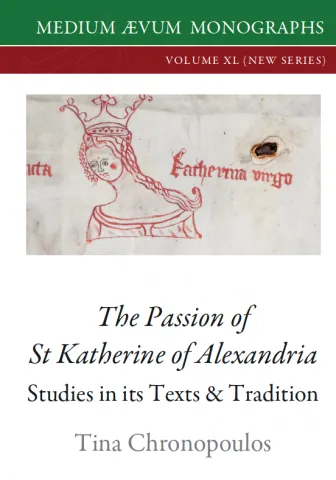Devout Christians and historians of various stripes have long sought to trace Katherine of Alexandria’s historicity and better understand her almost universal appeal in Western Christianity for private and collective devotion from the late eleventh century onwards. How and why did the passion of St Katherine, whose story did not generate a particularly exceptional devotion in Byzantium during the last few centuries of the first millennium, end up being transplanted into the fertile soil of eleventh century Normandy, an area seething with the energy of religious renewal and piety?
This study contends that Katherine’s appeal to the Normans is rooted in her relative obscurity and verisimilar similarities to early martyrs and that the very early texts already contain the kind of information/theatricality/disputes that made her so appealing in the Latin and vernacular West. The book examines the early textual tradition of St Katherine, which remains relatively unstudied and unknown, taking as its starting point the moment at which Katherine’s story becomes legible. The Latin literary tradition of Katherine’s cult originates in a Greek text (composed somewhere in the Byzantine empire), first translated and adapted into Latin in southern Italy in the tenth century, whence her story found its way to Normandy in the eleventh. Through codicological and textual analysis, the origins and relationships between the various Greek and early Latin vitae, which continue to be misunderstood in the historiography of Katherine’s cult, are illuminated, recalibrating our knowledge of the early textual tradition of one of the most venerated intercessors of medieval Western Christendom.
